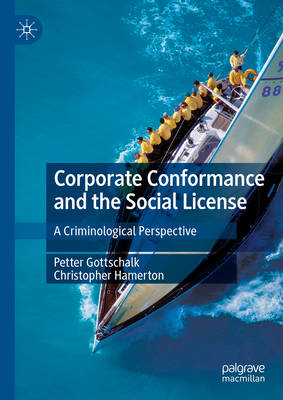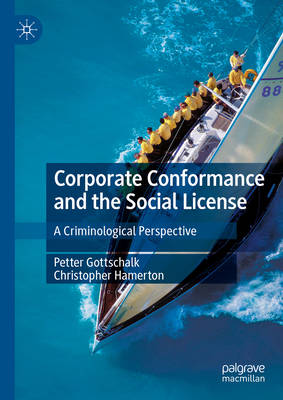
- Retrait gratuit dans votre magasin Club
- 7.000.000 titres dans notre catalogue
- Payer en toute sécurité
- Toujours un magasin près de chez vous
- Retrait gratuit dans votre magasin Club
- 7.000.0000 titres dans notre catalogue
- Payer en toute sécurité
- Toujours un magasin près de chez vous
Corporate Conformance and the Social License
A Criminological Perspective
Petter Gottschalk, Christopher HamertonDescription
The principal focus of Corporate Conformance and the Social License: A Criminological Perspective is to enhance and broaden the criminological dialogue surrounding the role of and effect of corporate conformance as a key element in the maintenance of the social license to operate. The book posits that in recent years conformance has emerged as a key component in shaping corporate behaviour and informing corporate crises. With a series of widely publicised global scandals heightening awareness of extensive and serious repercussions, revealing severe financial and environmental impacts, operational issues, and even existential concerns. This has led to a growing body of research focusing on how such crises materialise, are perceived and might be strategically managed and prevented. The book foregrounds conformance as a proactive demonstration of adherence to contemporary ethical standards of globalized business practice, with the authors offering a novel perspective that considers conformance and associated normative pressures within a criminological framework. Here, convenience theory is applied to analyse a series of important contemporary case-studies, with the research illustrating how corporations and their stakeholders have used conformance to manage, maintain and, following periods of crisis, attempt to regain their corporate license to operate. The book further explores differences in strategic conformance responses in terms of perceptions and reactions from the public, media and criminal justice system.
Spécifications
Parties prenantes
- Auteur(s) :
- Editeur:
Contenu
- Nombre de pages :
- 295
- Langue:
- Anglais
Caractéristiques
- EAN:
- 9783031958113
- Date de parution :
- 26-08-25
- Format:
- Livre relié
- Format numérique:
- Genaaid
- Dimensions :
- 148 mm x 210 mm

Les avis
Nous publions uniquement les avis qui respectent les conditions requises. Consultez nos conditions pour les avis.






